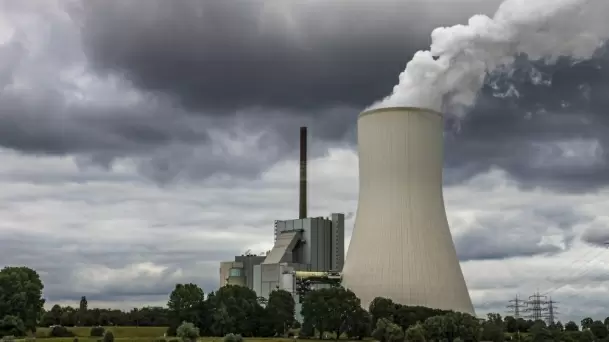Thermal power plants in TN emit more toxic gases than permissible limits: Study
26-October-2021

The thermal power plants of Tamil Nadu Generation and Distribution Corporation Ltd (TANGEDCO) NLC India Ltd and NTPC Ltd are emitting toxic gases over the permissible limits, as per a study by Poovulagin Nanbargal, an environmental non-government organisation (NGO).
The study also found many thermal plants do not have the flue gas desulfuriser (FGD) device, to monitor and control the quantity of toxic gases released from the plants.
According to Poovulagin Nanbargal, the study Emission Watch -- Status assessment of SO2 emission and FGD installation for coal -- based power plants in Tamil Nadu, was done along with Centre for Research on Energy and Clean Air (CREA) and ASAR.
Poovualgin Nanbargal along with CREA and ASAR conducted a survey on the quantity of toxic gases released from the thermal power plants in Tamil Nadu and identified the number of power plants that have a FGD device to monitor and control the quantity of toxic gases released from the plants.
The study is based on data obtained under the Right to Information Act, from the Tamil Nadu Pollution Control Board's Online Continuous Emission Monitoring System (OCEMS), the Central Pollution Control Board, Tamil Nadu Pollution Control Board, NLC India and NTPC.
According to the study, only two out of the 40 thermal power plants (13,160 MW) currently operating in Tamil Nadu (1,200MW) are equipped with FGD.
There has been no progress in the purchase of FGD for eight power plants, the study said.
As per the survey, 30 thermal power plants have not taken any action to fit the FGD device intended to reduce the toxic gas they emit.
Further, it is revealed that no thermal power stations operated by TANGEDCO and NLC India have called for tender to set up FGD in their plants, the study states.
"The Union Environment Ministry has set the standards for toxic gases released from thermal power stations in the country. A grace period of two years was given to reduce the toxic gas emission from the plants. But the grace period was extended, and by March 21, 2021 it was announced that the grace period was extended until 2024/25," Sunil Dahiya, a member who conducted the study from CREA said.
Dahiya further stated: "There is zero progress in fitting the FGD device for reducing emission during these decades, as well. It is shocking to know that not even one thermal power plant operated by the Government of Tamil Nadu and NLC had issued a single tender for the installation of FGD equipment to reduce emission."
Neyveli, Chennai, Thoothukudi and Mettur are the most coal burning areas in the country.
Neyveli and Chennai are among the top 50 coal burning areas in the world.
As per the study, there are significant discrepancies between the data provided on the website of Pollution Control Board's Online Continuous Emission Monitoring System (OCEMS) and the data available under the Right to Information Act (RTI) received in April, May, and June 2021.
Sulphur Dioxide (SO2) levels were shown to be very low even when air pollution control equipment was not fitted, according to documents obtained from the Pollution Control Board under the RTI Act.
Data obtained under the RTI Act further confirm that in many thermal power plants, Sulphur Dioxide, a gas known to be highly harmful to humans, has been emitted more than the permissible levels.
If the Pollution Outcome Measurement issued by the Department of Environment in 2015 had been implemented, Sulphur dioxide emissions should have been within the range of 600 mg / Nm3, 200 mg / Nm3, 100 mg / Nm3, depending on the size and year the power plant was installed, the study states.
G. Sundarrajan of Poovulagin Nanbargal said: "According to several reports of the IPCC (Intergovernmental Panel on Climate Change), human activity leads to global warming. The reports also say that the use of fossil fuel by thermal power plants lead to emission of greenhouse gases which in turn leads to intensification of climate change."
He said globally there is a shift towards renewable energy and India's interest in opening new thermal plants and refusing to close the obsolete ones, failure to monitor the highly polluting thermal plants and extending the timeframe for reducing the pollution is tantamount to travelling through the path of destruction.
As per the study, the solution is to focus on reducing air pollution by 1) investing in air pollution mitigation equipment at thermal power plants and 2) replacing old and less efficient thermal power plants with decentralised renewable energy - IANS
Missing BJP Leader Found Dead in Pond After Five Days in East Midnapore
Bulldozer Action In Rajasthan's Chomu After Stone-Pelting Incident
Cold Wave to Intensify in Delhi-NCR as Temperatures Dip Further; Air Quality Improves
Pakistan: Sindhi leader urges UN to act on enforced disappearance of activists
Delhi Metro officials brief CM Rekha Gupta on anti-smog guns, mist sprays to check pollution









